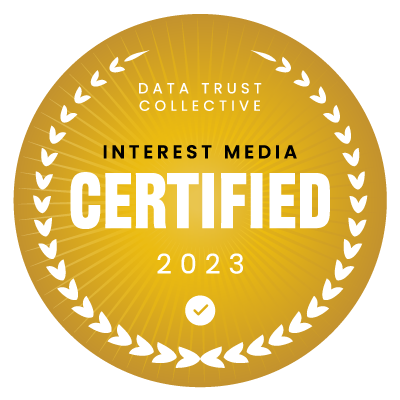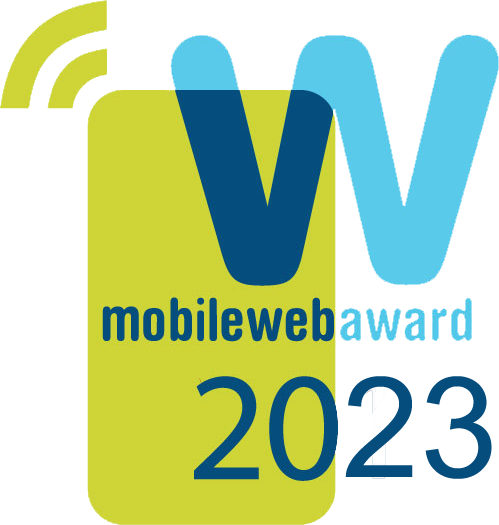
AI Technology: Should We Fear it or Embrace It?
- Understand the upside and downside of relying on AI tools such as ChatGPT or Alexa
- Changing the way content is created online might change the way we look at SEO
- The way we use AI could improve workflow processes
The face of technology is rapidly changing, and artificial intelligence is playing a big role. Companies use AI to create content, collect and analyze data, and source audiences. One of the most popular platforms being used is ChatGPT, an AI language processing tool that creates content, images, and even codes on demand via conversations with a chatbot.
Even in our everyday lives, we run into AI tools like Siri or Alexa. There is no doubt that things are moving towards incorporating more AI in our world. It can definitely be a benefit and save us time – who hasn’t told Siri to add a reminder or schedule a meeting for them? But there are other worries, like making it a major player rather than a helpful assistant.
Change is hard, and relying on artificial intelligence can make us feel like we’re giving up some control. There are many things to consider as you begin to incorporate AI into your workflow and utilize it to build your company. You don’t need to fear it, but learn to understand better how it is changing our world.
Publishers should work to embrace AI as it has the potential to bring many benefits to their industry. AI can automate tasks such as content creation and data analysis while freeing up time and resources for more creative and strategic work. Additionally, AI can help publishers better understand and target their audiences, leading to more effective and personalized content and advertising.
Impact on US Jobs
In a report by Zippia, 12% of business and HR leaders believe AI will lead to more jobs in their companies from 2020 to 2023. From the report, the projected impact of US jobs shows over half of the jobs will remain.
The Downsides of Relying on AI
While the impact of AI is looking positive, some concerns need to be addressed when it comes to relying on AI. Trusting completely in technology or thinking that you are training it to steal your job down the line is understandably terrifying. Refocusing your thinking and shifting your skills from being a writer to becoming an editor to work with AI can be advantageous in making AI work for you rather than against you.
- Job displacement: AI algorithms have the potential to automate tasks previously performed by humans, which could lead to job losses and reductions in the workforce. However, as the job landscape changes, there could be more opportunities elsewhere.
- Bias: If AI algorithms are trained on biased data, they may perpetuate and amplify these biases in the content they generate. It can have serious consequences, particularly in areas such as news and politics.
- Quality control: While AI can improve accuracy and speed, it is important to ensure that the content produced by algorithms is of high quality and free from errors and inaccuracies. This requires close supervision and monitoring by human editors and proofreaders.
- Content Quality: Creating quality content that is thoughtful and in-depth can be challenging. AI will repeat phrases and just create surface-level content.
The Upside to AI
Embracing the power of AI as it has the potential to bring about several benefits to publishers and writers. Here are a few advantages:
- Efficiency and speed: AI algorithms can assist with tasks such as editing and proofreading, allowing publishers and writers to work faster and with greater accuracy. They can produce more content in less time, reducing workload and freeing up time for other tasks.
- Content creation: AI algorithms can assist with the creation of optimized content by suggesting topics and headlines based on keyword research, as well as generating descriptions, meta tags, and other SEO elements.
- Link building: AI algorithms can be used to analyze and identify high-quality backlinks, helping publishers and writers to build a solid and diverse backlink profile, which is a crucial factor for ranking well in search results.
- Site structure optimization: AI algorithms can analyze a website’s structure and identify areas for improvement, such as broken links, missing alt tags, and other technical issues that can negatively impact search engine rankings.
- Personalization: AI can create custom content recommendations based on readers’ interests and reading habits. Publishers can better target their audience and increase engagement with their content.
- Cost savings: By automating routine tasks, AI can help publishers and writers to save money and reduce costs, especially in areas such as translation, fact-checking, and research.
We agree with an article from Cyber Theory which talks about AI being human enhancement rather than replacement.
Some people call this artificial intelligence, but the reality is this technology will enhance us. So instead of artificial intelligence, I think we’ll augment our intelligence.
– Ginni Rometty, former CEO of IBM
How AI Changes SEO and Content Creation
As of August 2022, Google’s stance on auto-generated content was negative. It stated this type of content went against their guidelines and was considered spam. Google’s Search Advocate, John Mueller, later retracted that and stated, “people have been automatically generating content in lots of different ways. And for us, if you’re using machine learning tools to generate your content, it’s essentially the same as if you’re just shuffling words around, or looking up synonyms, or doing the translation tricks that people used to do.”
Miranda Miller, Sr. Managing Editor at Search Engine Journal, commented on Google’s former stance,
“Wouldn’t it be strange for Google to ban the use of AI by webmasters and content creators for the purposes of improving user experience when they use it so heavily themselves?”
Google’s algorithms aren’t able to detect the difference if quality content is the main consideration. As of 2023, Google has changed its tune on AI-generated content. Even creating their own AI tool: Bard. Although, that seems to be giving them issues with accuracy.
Quality Over Keywords
Quality content is more important than ever in this highly-competitive world. AI content becomes predictable by repeating phrases and only going in-depth on topics when prompted. For more than surface-level content, you will need to ask in-depth questions and add your own words to show that you are an expert in the product you are providing.
When simply looking at a workflow for creating content online, AI proves to be a valuable asset. In an article by Foundation, they stated, “Our workflows are going to change as AI technology continues to advance. The speed in which we navigate through the content creation process should accelerate rapidly in the coming years.”
Who wouldn’t want to work faster and become more efficient? As the AI tools become smarter and more accessible, it would not surprise us to see things like “AI Editor” as a job skill or job title in the coming years.
The Verdict
AI can revolutionize the publishing and writing industries, but publishers and writers need to approach it with caution, considering its benefits and potential pitfalls.
You can utilize AI as an assistant tool to make your company more efficient, but you shouldn’t rely solely on it as it still has some quirks that need monitoring by a human. Having an editor on staff to ensure quality content is being produced is critical. Verifying data and monitoring content so that it is unbiased is essential.
Try incorporating AI into your content and see what happens. Use it for brainstorming ideas and for making mundane tasks automated. Remember that it is a tool that can help your work better and find the audiences you need, but human oversight and expertise will always be needed. We look forward to seeing how the future is shaped by AI.














